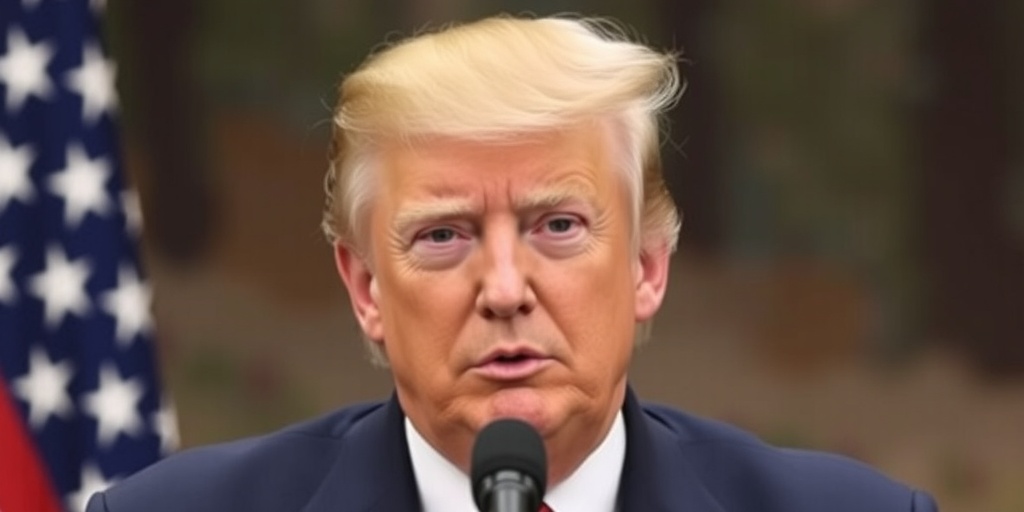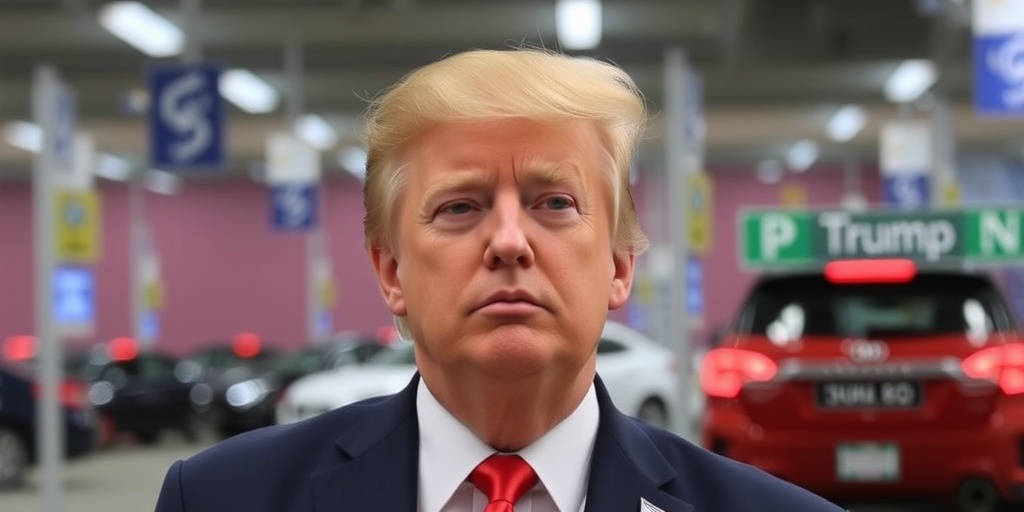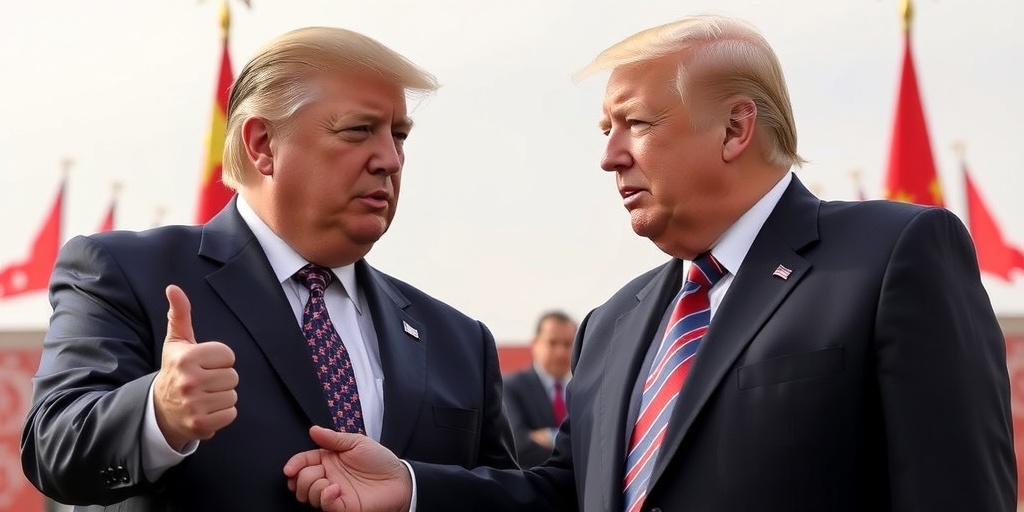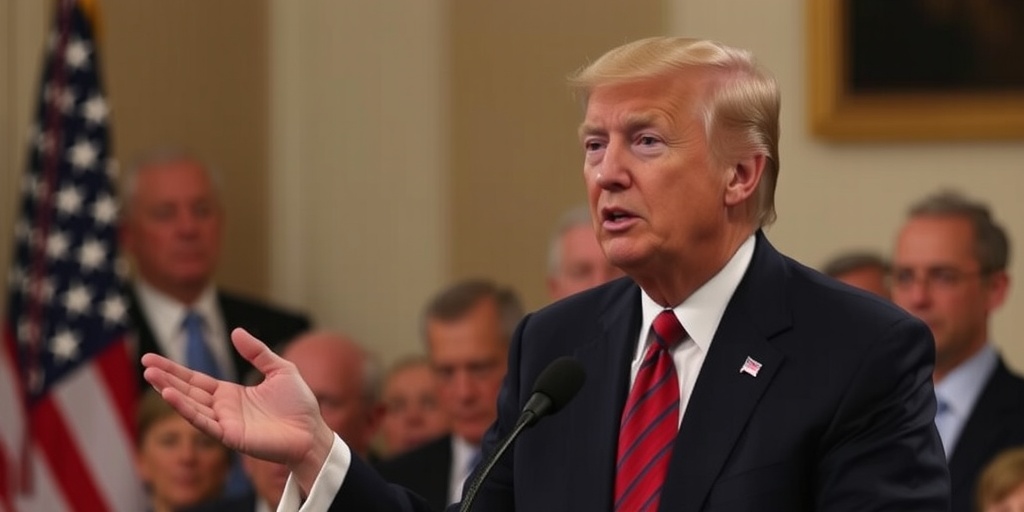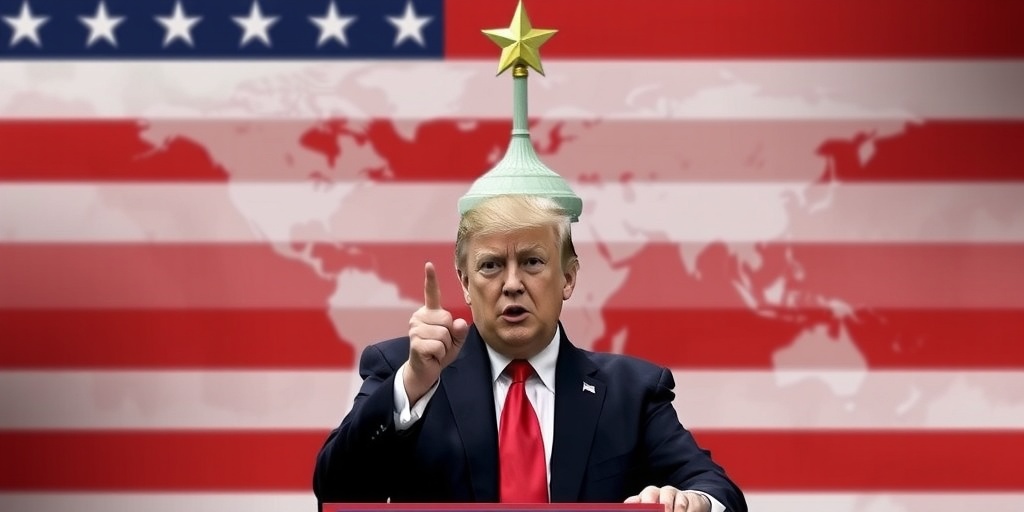Now Reading: Trump’s Plan for Cryptocurrency Reserve
-
01
Trump’s Plan for Cryptocurrency Reserve
Trump’s Plan for Cryptocurrency Reserve
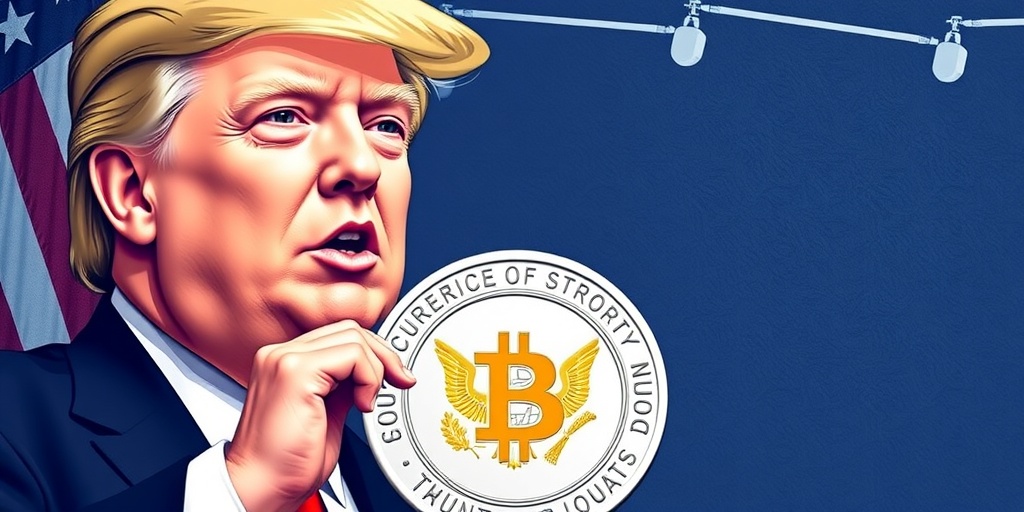
Title: Controversy Surrounds Trump’s Proposal for a National Crypto Reserve
In a striking move that has provoked mixed reactions, former President Donald Trump has announced plans to establish a national cryptocurrency reserve. This initiative, aimed at creating a federal Bitcoin stockpile, has encountered significant backlash from various political quarters, especially among Republicans and investors, while simultaneously causing fluctuations in cryptocurrency prices. Bitcoin, for instance, which was trading at approximately $83,800 at the start of Tuesday, has seen a drop of nearly $10,000 within a day, emphasizing the market’s volatility linked to Trump’s announcement.
The concept of a national crypto reserve has raised numerous questions regarding its practical implementation and the inherent risks associated with such a venture. Trump’s proposal entails the involvement of David Sacks, a venture capitalist he appointed as the designated "crypto czar," overseeing the initiative. One of the additional strategies discussed by advisors is the retention of Bitcoin already seized from criminal activities, a quantity estimated at around $17 billion.
A legislative proposal by Senator Cynthia Lummis of Wyoming aims to direct the government to purchase approximately 200,000 Bitcoin annually over the next five years, amounting to an estimated expenditure of $90 billion. To finance this endeavor, the bill suggests reallocating $4.4 billion from the Federal Reserve’s surplus, raising concerns about the potential financial implications for the Treasury Department. With the anticipation of federal purchases, prices of digital tokens are expected to rise, creating a speculative market environment.
One critical question lingering around this proposal is whether Trump, faced with divisions among Republican lawmakers, would choose to advance the creation of a national reserve unilaterally, thus potentially testing the legal boundaries of his authority. Such a move could further exacerbate the existing tensions within the party over the viability and necessity of a national crypto reserve.
Taxpayer involvement in funding the reserve has emerged as a major point of contention. Many detractors, including Trump supporters like financier Joe Lonsdale, have voiced strong opposition to the prospect of using taxpayer money for what they perceive to be risky investments linked to “crypto bro schemes.” The sentiment resonates with other investors who have termed the proposal an “unforced error,” warning that it would disproportionately benefit insiders and creators of cryptocurrencies at taxpayers’ expense.
To address concerns regarding public financing, some cryptocurrency executives have proposed the idea of instituting a specific tax on transactions related to the burgeoning $27.6 trillion stablecoin market as a means to fund the reserve.
Adding to the complexity of the situation is the inherent volatility of cryptocurrencies. With the significant price fluctuations in the digital currency landscape, the prospect of taxpayer money being allocated towards what many view as a speculative investment raises alarm. Expert opinions, including those from economists like Eswar Prasad from Cornell University, have stated that there is “nothing strategic or sensible” about Trump’s proposal. Given the potential for losses, implementing such a policy could lead to unfavorable outcomes for taxpayers, emphasizing the risks associated with placing government funds in volatile assets.
Furthermore, the creation of a national crypto reserve would position the U.S. government as a capital allocator, a role that Sacks himself critiqued in a post from 2021. This raises questions about the appropriateness of government involvement in private-sector markets and the implications of such a relationship.
In a theoretical context, proponents of the national crypto reserve argue that any profits derived from the government’s investments in cryptocurrencies could be utilized to address the nation’s staggering $36 trillion debt. However, the apprehensions surrounding Trump’s motivations and the involvement of his supporters—who have a vested interest in the crypto market—are difficult to overlook. For instance, Trump’s own venture into cryptocurrency reportedly includes millions of dollars in tokens that are expected to be held within the proposed reserve, further complicating the perception of conflict of interest.
As the discourse around the proposed national crypto reserve continues to evolve, significant uncertainty remains regarding the selection of specific tokens and the advisory team behind the initiative, which indicates a potentially narrow field of influence guiding Trump’s decisions in this volatile market. This initiative prompts critical discussions about the intersection of government policy, cryptocurrencies, and their broader implications for the financial landscape in the United States. The developments in this area will warrant close observation as further details about the proposal emerge, shaping the future of cryptocurrency integration into national economic strategies.
Stay Informed With the Latest & Most Important News
Previous Post
Next Post
-
 01New technology breakthrough has everyone talking right now
01New technology breakthrough has everyone talking right now -
 02Unbelievable life hack everyone needs to try today
02Unbelievable life hack everyone needs to try today -
 03Fascinating discovery found buried deep beneath the ocean
03Fascinating discovery found buried deep beneath the ocean -
 04Man invents genius device that solves everyday problems
04Man invents genius device that solves everyday problems -
 05Shocking discovery that changes what we know forever
05Shocking discovery that changes what we know forever -
 06Internet goes wild over celebrity’s unexpected fashion choice
06Internet goes wild over celebrity’s unexpected fashion choice -
 07Rare animal sighting stuns scientists and wildlife lovers
07Rare animal sighting stuns scientists and wildlife lovers













